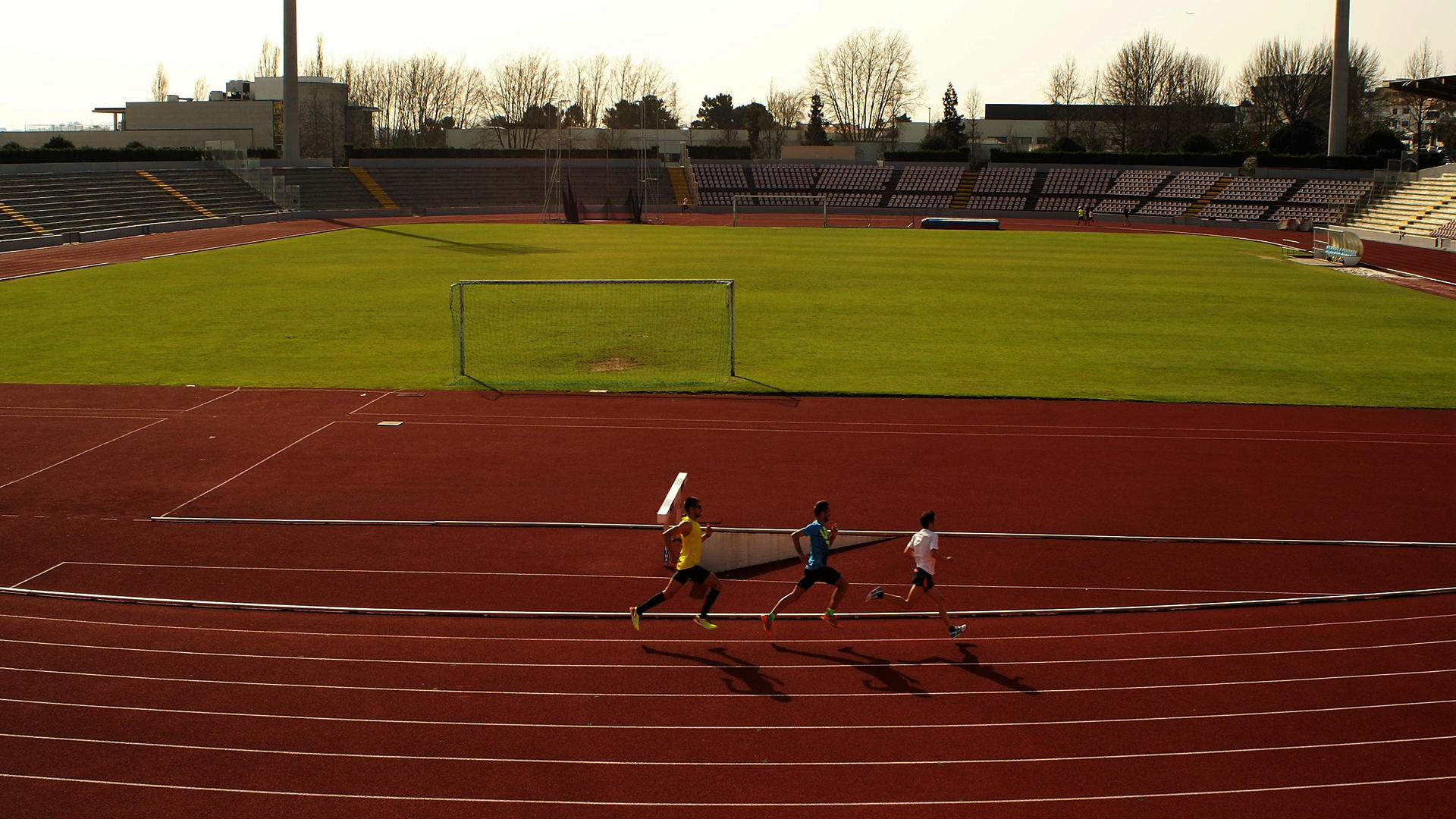Accessibility in Portugal
Accomodation
In Portugal, you will find a range of accommodation with adapted rooms for people with special needs and some properties also offer fully adapted services and accommodation. However, it would be advisable to contact the establishment directly to obtain information about the facilities available. On the www.visitportugal.com website, the indication “Access for the Disabled” is given in the Characteristics and Services section of properties that are accessible to people with reduced mobility.
Driving
Driving for disabled persons
In Portugal, the driving regulations for disabled persons relate solely to their physical and mental fitness and may result in restrictions or adaptations that must be mentioned in the driving license.
Disabled persons with a driving license that is valid in Portugal may drive vehicles provided that they comply with the restrictions or adaptations relating to their situation.
Parking cards for people with disabilities, based on the standardized Community model and issued by any of the Member States, are recognized in Portugal. The spaces reserved for this purpose are clearly signposted. Parking is permitted in other places, in situations of absolute necessity, provided that this is only for short periods of time and does not interfere with the normal and free circulation of pedestrians and vehicles.
Driving
Vehicles drive on the right in Portugal. Unless otherwise indicated, vehicles coming from the right have priority in squares and at intersections. At junctions with roundabouts, vehicles already on the roundabout have right of way.
Road signs comply with international rules.
Compulsory papers:
– Personal ID
– Driving licence
– Motor insurance certificate
– Vehicle registration or equivalent
– Vehicle logbook (livrete)or equivalent
On the spot fines are issued.
Speed limits for cars without trailers and motorcycles:
50 kph – in built-up areas
90 kph – on normal roads
100 kph – on roads restricted to motor vehicles
120 kph – on motorways
All occupants must wear seat belts.
The Portuguese Highway Code forbids the use of mobile phones while driving, unless you’re using hands-free equipment or an earphone.
Alcohol, drinking and driving
It is against the law to drive with a blood alcohol level of 0.5 grams per litre or more.
– A blood alcohol level between 0,5 g/l and 0,8 g/l is considered a serious offence, and it is sanctioned with a driving inhibition between 1 month and a 1 year and a fee payment of an amount from 250 up to 1.250 euros.
– A blood alcohol level between 0,8g/l and 1,2g/l is a very serious offence, sanctioned with a period of driving inhibition between 2 months and 2 years and the a fee payment of an amount from 1.250 up to 2.500 euros.
– A blood alcohol level of 1,2g/l or more is considered a crime, that can be punished with imprisonment up to 1 year or fee penalty up to 120 days, and driving inhibition between 3 months and 3 years.
Entry Formalities
Entry formalities
Citizens of the European Union, Iceland, Liechtenstein, Norway and Switzerland need only an identity card to enter Portugal.
In addition to their identity card, minors must also present authorisation from their parents to travel.
For visits of less than 90 days, a passport valid for at least three months after the end of their stay is necessary for visitors from Albania, Andorra, Antigua and Barbuda, Argentina, Australia, Bahamas, Barbados, Bosnia-Herzegovina, Brazil, Brunei, Canada, Chile, Costa Rica, Croatia, Guatemala, Holy See, Honduras, Israel, Japan, Macedonia, Malaysia, Mauritius, Mexico, Monaco, Montenegro, New Zealand, Nicaragua, Panama, Paraguay, Saint Kitts and Nevis, San Marino, Serbia, Seychelles, Singapore, South Korea, United States of America, Uruguay, Venezuela, Special Administrative Regions of the People’s Republic of China in Hong Kong and Macao and Taiwan territorial Authority.
Citizens from countries not mentioned above need a visa to enter Portugal, which may be requested at the Portuguese Embassy or Consulate of their country for stays of up to 90 days.
Under the terms of the Convention Implementing the Schengen Agreement, flights between Schengen states are considered to be internal flights and passengers do not need to obtain another visa.
Related links:
Visa requests
– http://www.secomunidades.pt/vistos/index.php?option=com_content&view=article&id=171&Itemid=14&lang=pt
Portuguese consulates
– http://www.secomunidades.pt/web/guest/PostosConsulares
Portuguese Immigration Authority
– http://www.sef.pt/portal/V10/EN/aspx/page.aspx
Health
Health
If you require medical assistance contact the local Health Centre.
Hospital emergency services should be used only in serious situations (serious injury, poisoning, burns, infarction, thromboses, breathing difficulties, etc.).
In case of illness or accident while visiting Portugal, Nationals from the 27 European Union countries, Iceland, Liechtenstein, Norway or Switzerland are entitled to free or reduced-cost healthcare (the same benefits as Portuguese citizens). In order to have access to health services, citizens from the above-mentioned countries, who are not resident in Portugal, must produce their European Health Insurance Cards (issued by the origin country) together with passports or identity cards.
Algarve – Medical services for tourists
During the summer holiday season, tourists needing medical assistance can go to one of the 32 Beach Healthcare Facilities operating all along the coast of the Algarve. The aim is to provide healthcare and respond to medical situations that can be treated on the spot or, if necessary, refer the patient to a more appropriate healthcare facility.
This service complements the normal healthcare services available at Centros de Saúde (Health Centres). The daily operating hours for 2016 are as follows: 4 July to 3 September – 10.30 am to 7.30 pm; 4 to 18 September – 10 am to 6 pm. More information is available online at http://www.arsalgarve.min-saude.pt
Services
Post Offices
In general, post offices are open from Monday to Friday, from 9 a.m. to 6 p.m.Central and airport offices have extended opening hours and may be open on Saturdays and in some cases also on Sundays.
Stamps are sold in post offices and vending-machines in the streets.
Many post offices have the Netpost service that on payment allows access to personal e-mail and the Internet.
More detailed information about opening hours and services available at each office can be found on www.ctt.pt
Pharmacies
In general, pharmacies are open on weekdays between 9am and 7pm (some close for lunch from 1 to 3 p.m.) and on Saturdays between 9am and 1pm.
They display an illuminated green cross outside when open at night.
All of them have information posted on the door indicating the nearest pharmacies that are open at night.
Shops
Traditionally, shops are open from Monday to Friday, from 9 or 10 a.m. to 7 p.m. Some close for lunch from 1 to 3 p.m. On Saturdays from January to November, shops generally close at 1 p.m. though in city centres some are open in the afternoon.
Shops tend to stay open on Saturday afternoons and sometimes even on Sundays in December for Christmas shopping.
There are plenty of shopping centres inside and outside the cities that are usually open from 10 a.m. to midnight every day of the week. They generally have stores with the main international brands.
However, traditional shops with Portuguese products can be found particularly in the streets of the older neighbourhoods of towns and cities.
Banks
Banks are open from 8.30 a.m. to 3 p.m. five working days a week.
Portugal has a national network of cash machines (ATMs) identified by the symbol MB (Multibanco), from which you can withdraw cash 24 hours a day.
Transports
Rent a Car
There are car rental services at airports, international rail terminuses and in the main towns and cities.
Drivers with mobility difficulties, or anyone who prefers to, can rent automatic or adapted vehicles.
To rent a car you must:
- be over 21 or 25 years old, depending on the company’s rental policy;
- show identification (identity card for EU citizens or a valid passport for other nationalities);
- have had a driving license for more than one year.
Getting to Portugal by road
By Car
Portugal has a good road network composed of Motorways (AE), Main Trunk Routes (IP), Complementary Trunk Routes (IC), Main (National) Roads (EN) and Secondary (Municipal) Roads.
There are two types of motorways:
- the traditional motorways with toll booths, where payment is made either in cash or by bank card. These motorways also have a Via Verde (green channel), which is an electronic toll system that allows drivers to make the payment by bank debit and is intended for use solely by those who have an electronic device identifying their vehicle, which they have previously acquired at one of the respective sales outlets (www.viaverde.pt).
- and motorways that have an exclusively electronic toll system, where tolls are collected by exclusively electronic means. As vehicles pass through the toll gates, they are picked up by electronic detectors placed at the entry to the channels, which are identified with the words “Electronic toll only”. For information about the roads covered by this system and the respective forms of payment, consult http://www.portugaltolls.com
By Bus
You can get to Portugal by bus. Eurolines (www.eurolines.fr) and Intercentro (http://internorte.pt) both operate international routes to and from Portugal.
There are regular bus services between Portugal’s main towns and cities. For details of routes, timetables and fares visit http://rede-expressos.pt the website of Rede Nacional de Expressos.

